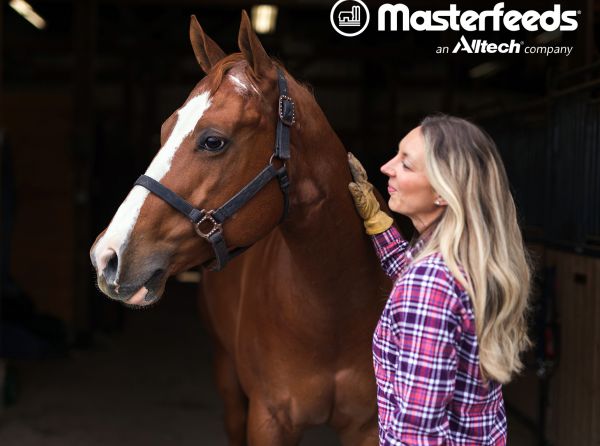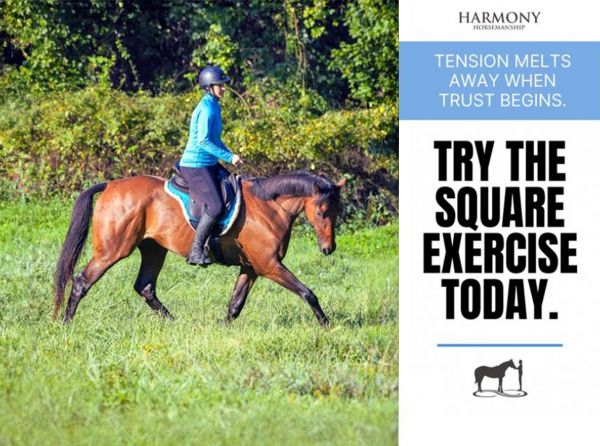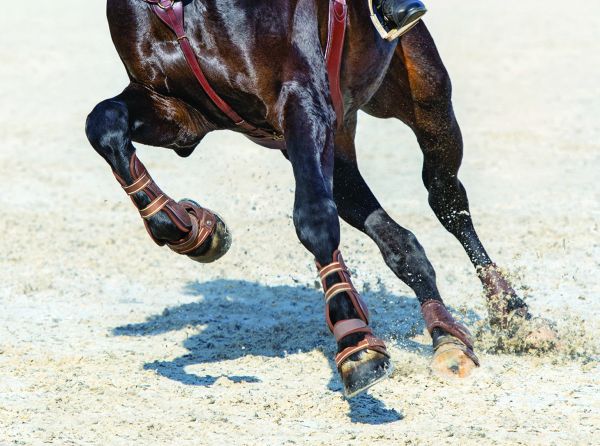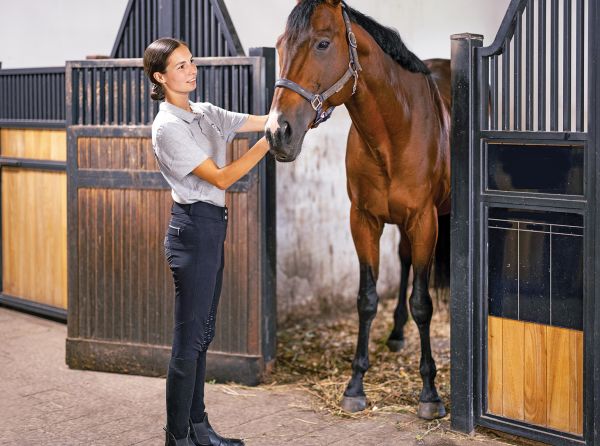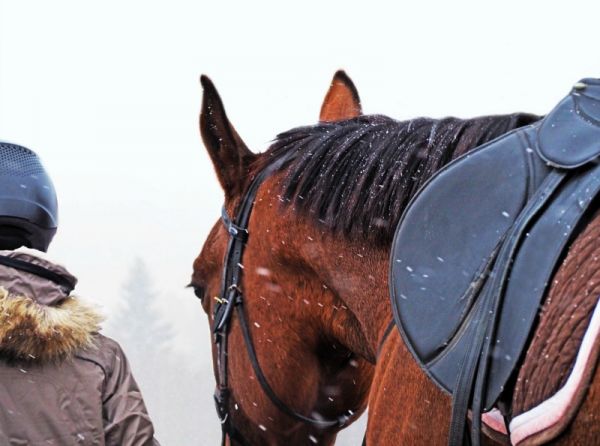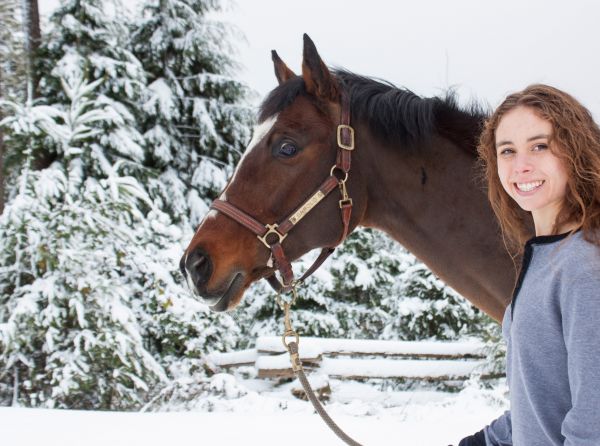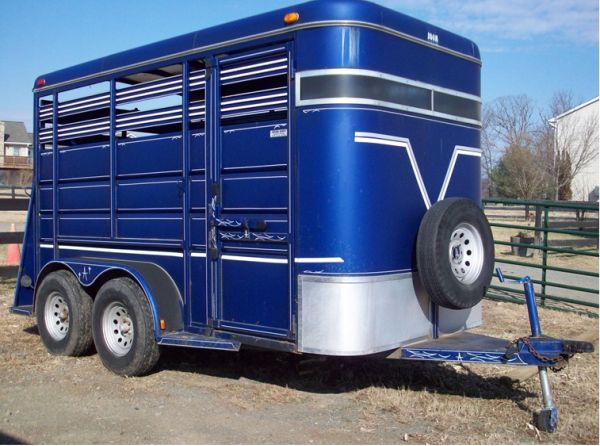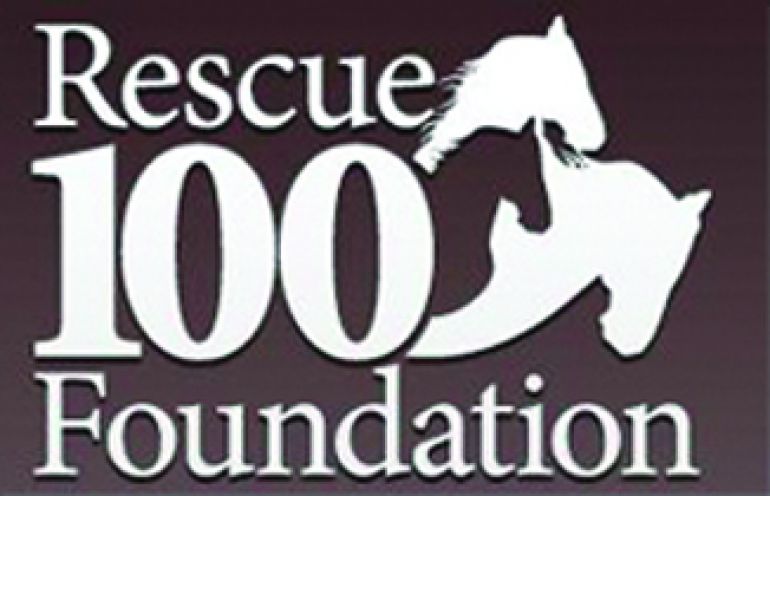By April Clay M.Ed., Registered Psychologist
I am not good enough.
I don’t have an equitation body.
I’m too nervous.
I’m such a wimp.
Have you ever tried to shame yourself into better riding with discouraging statements like these?
Shame goes beyond garden variety negativity. The message you send yourself is: “I am useless” or “I am worthless,” and the implication is that there is something wrong with you as opposed to you having done something wrong. You label yourself, so that every time something goes wrong with your ride, you can say, “I knew it, I am just hopeless.”
This is why shame is so destructive. It creates a loop of thinking that leads you into negative anticipation, lack of or poor decision-making, and then more labeling.

Photo: April Clay
That’s exactly where Breanne, a rider who recently returned to horses, found herself:
Because I could not “get” things as fast as I had in the past, the worst memories and thoughts exploded in my head. All I could hear were the words of an old coach who told me I had no natural talent and I would have to work hard at it. So I started to just freeze up.
Rider shame can be created through poor coaching and/or parenting experiences. If someone tries to criticize, judge, and shame you into change, chances are you will learn to do the same with yourself. This is especially true if this person is someone you count on (a parent) or someone you respect for his or her knowledge (a coach).
Not unlike the culprits who planted the seed, we mistake self-shaming for motivation when it’s actually the opposite. Self-shaming is demotivating and demoralizing and no positive change will result.
Here are five antidotes to self-shaming:
Antidote #1: Put the critic on a short leash
Figure out how you will respond to your inner shame maker. It might be something like: “Get back to me when you have something useful to say. Now if you’ll excuse me, I have to get back to problem solving.”
The critic is not a helpful coach by any means; their only function is to label and shame. So decide that you will only listen to constructive feedback, then shift focus and ask yourself: What do I need in order to move forward? Ask for feedback, study the problem systematically, and then identify goals.
Defy the critic with a solid plan for better riding.

Photo: April Clay
Antidote #2: Define yourself
When you give into shame, you allow old voices and not-so-nice new internal ones to decide your riding ability, which isn’t fair or productive. Instead, take the task of defining yourself into your own hands. Do you want to know yourself as a fearful “Chicken Little” with multiple phobias, or a competent rider who knows how to get the job done? Think about it.
It’s time to relabel yourself. Write out three or four statements describing the qualities that define you, such as:
- I am the type of rider who loves to solve challenges.
- I am the type of rider who is known for her strong work ethic.
- One word I would use to describe myself under pressure is “focused.”
- When unexpected things happen, I can always be counted on to keep moving.
When you are building your goals, be sure to include actions that support your identity. For example, if you want to be known as someone with a strong work ethic, your goals might be to ride without stirrups once a week, and to always be on time for lessons.
Your words matter because they become statements, which become expectations and then behaviour.

Photo: April Clay
Antidote #3: Take risks
These don’t have to be great big risks that scare the pants off you, but it is important to feel the stretch in your goals, the tug at your comfort zone. Take small risks that support the kind of identity you want to have as a rider. For Breanne, it was asking to go first in a group lesson:
When I did that one small thing, it made me feel back in control. Yes, I was scared, but after asking to go first a few times, something shifted. I started to feel as if I could be the kind of rider who likes going first!
Something great happens when you challenge yourself – you start to generate pride, which happens to be the most powerful shame killer.

Photo: April Clay
Antidote #4: Posture the shame right out of your body
Everyone knows that the mind can influence the body, but you can also use the body to change your physiology, and therefore your mind. Harvard researcher Amy Cuddy and her colleagues found that holding your body in a power position for two minutes or more changes your chemistry. The stress hormone begins to drop and testosterone starts to rise, and naturally you feel more confident and your thinking shifts accordingly.
A power pose is one in which you take up space (think head up, shoulders back, wide stance, hands on hips). You can even do an in-saddle variation. Give it a try the next time you are feeling down on yourself.
Allow your body to help you out.

Photo: April Clay
Antidote #5: Identify and honour your strengths
It’s really easy to get focused on the negative and forget what you have in your skills bank. Taking the time to honour your strengths can be a great end-of-the-season task that leads nicely into goal setting for winter training or a routine to do before a show. Make a list of what you are really skilled at as a rider. Get specific. Name your super strengths and define yourself as having and using them. Place this list in a location where it’s easy to review. Use it as a visual cue when you’re having a bad day – when your shame monster is having tantrums.
Activate that positive inner coach, the one who will help you navigate any challenge.

To read more articles by April Clay on this site, click here.














